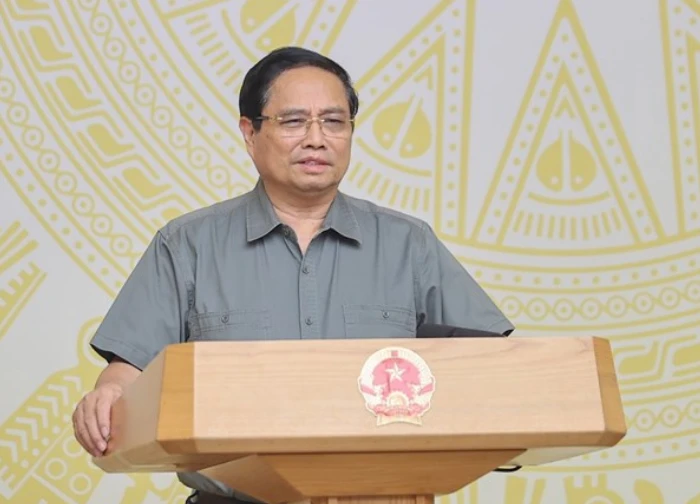On September 22 in Hanoi, Prime Minister Phạm Minh Chính, Head of the Central Steering Committee on Housing Policy and the Real Estate Market, chaired the Conference announcing the decision to consolidate the Steering Committee and its first meeting.

The Conference marked a strategic step in reaffirming the Government’s determination to address long-standing challenges in the real estate market, particularly in the field of social housing.
The core role of housing in social security policy
Speaking at the Conference, Prime Minister Phạm Minh Chính emphasized that housing development is not only an economic objective but also a crucial pillar of social security policy. According to the Prime Minister, the right to housing is a fundamental right of citizens, and ensuring this right contributes to promoting progress, social equity, and sustainable economic development.
The Prime Minister pointed out that in recent years, the Government has made significant efforts to restructure the real estate market. The focus of these efforts has been to increase the supply of social housing and affordable housing, targeting low-income, middle-income, and vulnerable groups. Thanks to these strong directives, the Steering Committee advised the Government and the Prime Minister to issue 22 Resolutions, 16 Directives, and multiple Official Telegrams, creating positive changes in the market.
Remarkable achievements and remaining challenges
Results show that the real estate market has shown signs of recovery. This development not only helps improve urban quality and infrastructure but also gradually enhances the material and spiritual life of the people. Moreover, the recovery of the real estate market has created spillover effects, boosting many other production and service sectors.
One of the most notable highlights is the progress of the Project to develop 1 million social housing units for the period 2021–2030. So far, 692 projects have been launched nationwide with a total scale of 633,559 units. Among them, 165 projects have been completed, delivering more than 110,000 apartments. In addition, 147 projects are under construction, and 380 projects have received approval in principle for investment.

In particular, the Government has completed 5 years and 4 months ahead of schedule the nationwide elimination of temporary and dilapidated housing, supporting the construction of 334,000 homes for people with meritorious service and disadvantaged households. This is a profoundly humanitarian achievement.

However, the Prime Minister also frankly pointed out existing difficulties and obstacles. The real estate market in general, and the development of social housing in particular, still face many limitations and have not fully met actual demand. The Prime Minister raised a key question that needs clarification: “Why are apartment prices high and constantly rising?” At the same time, he called for inspections and corrections regarding hoarding, price gouging, speculation, and market distortion.

To thoroughly address these issues, the Prime Minister requested delegates to review and evaluate the implementation of assigned tasks. This aims to clearly identify institutional, resource, and policy bottlenecks, thereby proposing suitable solutions. This Conference is not only an opportunity to review achievements but also to reorient strategies, ensuring that housing development goals are achieved effectively, bringing practical benefits to the people and contributing to the sustainable development of the country.


 Zalo
Zalo Webchat
Webchat